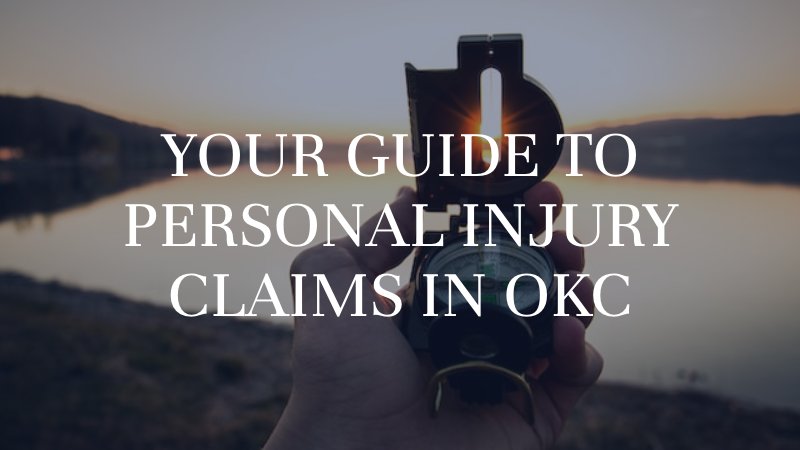Comprehensive Guide to Oklahoma City Personal Injury Laws

Everyone should know their legal rights after a preventable injury in Oklahoma, but many people don’t familiarize themselves with personal injury laws until after they’ve experienced an accident. A personal injury claim is a civil matter enabling injury victims to seek compensation for their damages after they’ve suffered an injury due to someone else’s negligence, reckless behavior, or intentional wrongdoing. “Damages” are the way the court describes the economic and non-economic consequences of an accident or injury. When the injury directly results from someone else’s actions, the injury victim shouldn’t be left responsible for economic damages such as medical costs. They may also deserve justice in the form of compensation for non-economic damages such as pain and suffering.
Oklahoma’s fault-based insurance system can become complex when navigating a personal injury claim so injury victims often seek legal representation through an Oklahoma City personal injury attorney.
What is a Personal Injury?
A personal injury lawsuit serves as a legal recourse for injury victims seeking compensation from the party at fault for their injury and related damages. If the injury victim was entirely at fault for their injury, they cannot seek compensation. When someone else’s negligent action caused the injury, personal injury law dictates that the at-fault party bears responsibility for the damages. Typically, the appropriate insurance policy covers this type of claim, such as auto insurance personal injury protection (PIP) after a car accident or a business’s commercial liability insurance for a slip-and-fall injury. Before an injury victim (plaintiff) can make a case for compensation, they bear the responsibility for proving liability on the part of the individual or business entity at fault (defendant).
Most personal injury claims are resolved through negotiations directly with the defendant’s insurance company and a settlement, but when an insurance company denies or undervalues a valid claim in order to protect their profits, the case may proceed to a courtroom in a personal injury lawsuit within the state’s statute of limitations.
What is the Statute of Limitations for Filing Personal Injury Lawsuits in Oklahoma City?
Like all states, Oklahoma places a time limit on personal injury lawsuits. This limit ensures that evidence remains available and eyewitness testimony is still reliable when a case comes to court. Oklahoma’s statute of limitations for personal injuries is two years from the date of the accident or incident that caused the injury. Some exceptions to this limit may apply, including the following:
- When a victim is under the age of 18 when an injury occurs they have until two years after their 18th birthday to file a lawsuit
- If it takes some time to discover an injury after an accident, the victim has two years from the date of discovery to file a lawsuit. For example, if a doctor diagnoses a nagging headache and confusion as a brain injury weeks after an accident, the victim has two years from the discovery date to file a lawsuit
If you have questions about how the state’s statute of limitations applies to your case, a personal injury attorney in Oklahoma City can help.
Understanding Liability for a Personal Injury Cases In Oklahoma City
A successful claim for compensation after a personal injury requires proving that the at-fault party bears liability for damages due to their negligence. To demonstrate legal liability, the injury victim and their lawyer must show the following:
- That the at-fault party owed a duty of reasonable care to prevent injury to others
- They breached this duty through an act of negligence, recklessness, or wrongdoing
- The injury victim suffered significant damages from the injury
What Compensation is Available in Oklahoma City Personal Injury Cases?
Damages in personal injury claims in Oklahoma typically include economic damages like medical expenses, lost income, and diminished future earning capacity due to disability. Non-economic damages are also available for a victim’s pain and suffering. Sometimes other non-economic damages apply such as PTSD, emotional trauma, or loss of enjoyment of life.